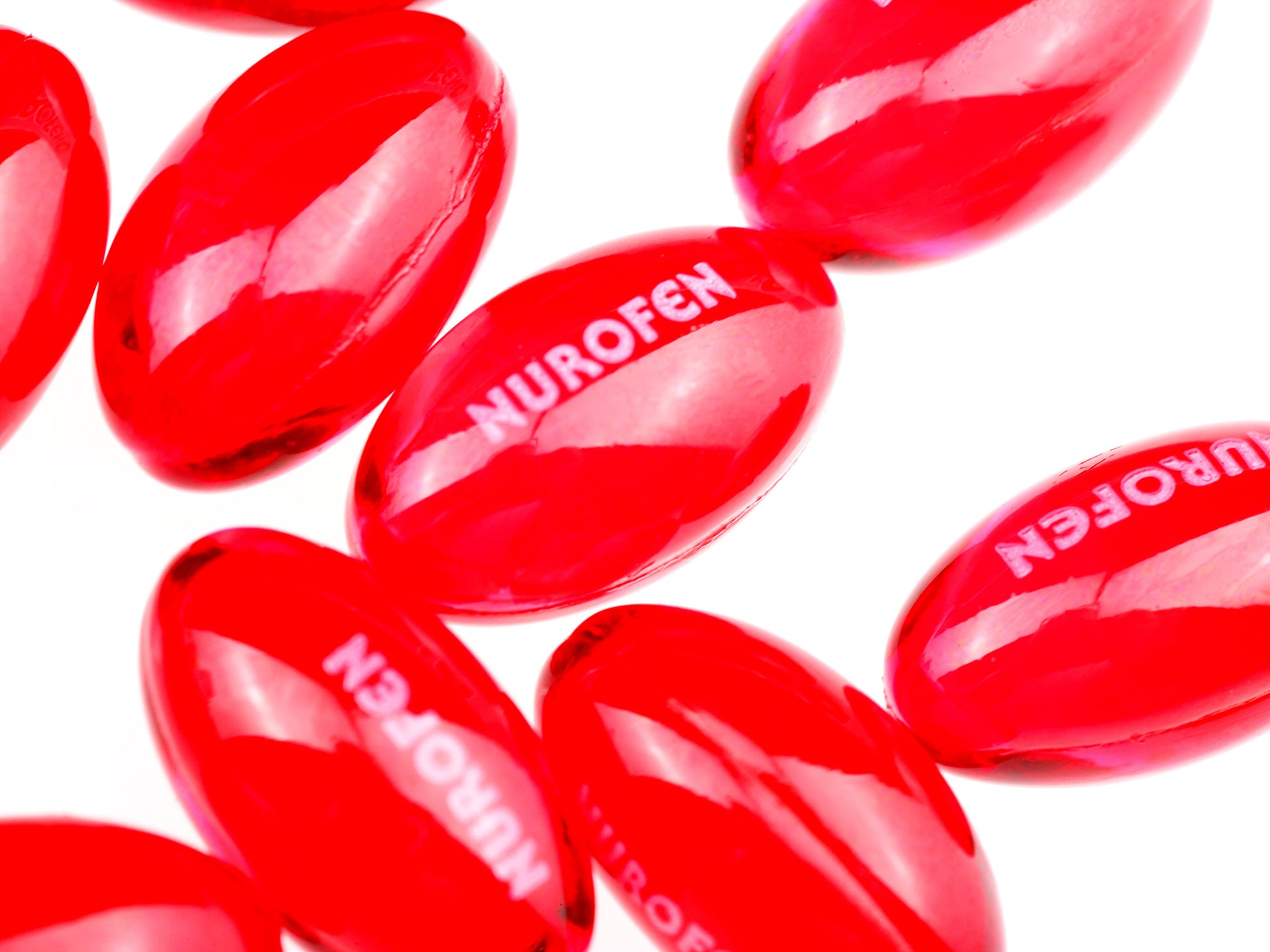Nurofen manufacturer Reckitt Benckiser under investigation by UK watchdog for selling 'misleading' painkillers
Exclusive: Versions supposedly targeting different parts of the body were in fact identical

Drug company claims for over-the-counter painkillers are under investigation by a UK watchdog, The Independent has learnt.
The Advertising Standards Authority (ASA) is examining complaints that drug firm Reckitt Benckiser, makers of Nurofen, is misleading consumers with unfounded claims for its pain-relief products.
The British investigation comes after a court in Australia ordered the firm to pull several of its Nurofen pain-relief products from the shelves, saying the British firm had misled consumers by marketing identical products for different types of pain.
The Federal Court in Sydney ruled that the Nurofen Back Pain, Period Pain, Migraine Pain and Tension Headache products were in fact identical and that Reckitt Benckiser had “engaged in misleading conduct” by labelling them for different ailments.
Nurofen specific pain- relief products were also sold at almost double the price of Nurofen’s standard painkiller. The products, which appear tailor-made for specific conditions, are also sold in the UK.
A spokeswoman for the company said the Australian case was not “directly applicable to other countries or regions”.
However, the ASA has launched an investigation into claims made in television advertising for Nurofen Express after a series of complaints were made earlier this year.
An ASA spokeswoman said: “Complainants have challenged whether the ad is misleading because it implies the product directly targets muscles in the head.
“They’ve also challenged whether the claim ‘gives you faster headache relief than standard paracetamol or ibuprofen’ is misleading.”
The investigation, which has been ongoing since March, is described as “complex”.
“The advertiser [Reckitt Benckiser] is providing evidence to substantiate its claims. We’re carefully assessing that and we’ll publish our findings in due course,” the spokeswoman said.
The Australian Competition and Consumer Commission (ACCC), which brought the court action, said the company had three months to remove the Nurofen specific-pain products from shelves in Australian shops. A date for a hearing or a fine is yet to be announced.
The ACCC said each Nurofen specific-pain product contained the same active ingredient, ibuprofen lysine 342mg, and was no more effective at treating the type of pain described on its packaging than any of the other Nurofen specific-pain products.
Reckitt Benckiser said its Nurofen specific-pain range “did not set out to mislead consumers”. “The Nurofen specific-pain range was launched to help consumers navigate their pain-relief options, particularly within the grocery environment where there is no healthcare professional to assist decision making,” a spokeswoman said.
The Medicines and Healthcare Regulatory Products Agency (MHRA) which polices pharmaceutical marketing on product packaging said it was aware of the Australian ruling but had not received a complaint about Nurofen products in the UK.
“For over-the-counter medicines, informative names are permitted to help patients select an appropriate product without input from a healthcare professional,” a spokeswoman said.
Legal experts said that the advertising on the Nurofen packaging looked “on the face of it to be misleading” but stressed the key legal test under consumer protection regulations was whether the “average consumer” is misled.
“An average consumer would pay some attention to documentation given to them, but not necessarily to the small print unless key points in it are brought to their attention,” one lawyer said. “What checks they make will be influenced by the information that a business has given them.”
Consumers affairs campaign group Which? described drug companies’ targeted marketing as a waste of money. Which? researchers found 14 products, all identical but ranging in price from 8p a tablet to 20p per tablet which were marketed in major high street shops as “migraine relief”, “period pain relief”, “express pain relief” and “rapid pain relief”, but which are the same formulation.
Which? editor Richard Headland said: “Our research shows many painkilling medicines have exactly the same active ingredients, despite vastly different marketing, packaging and pricing. Our advice to people is to buy cheaper generic medicines wherever possible and, if in doubt, ask a pharmacist.”
